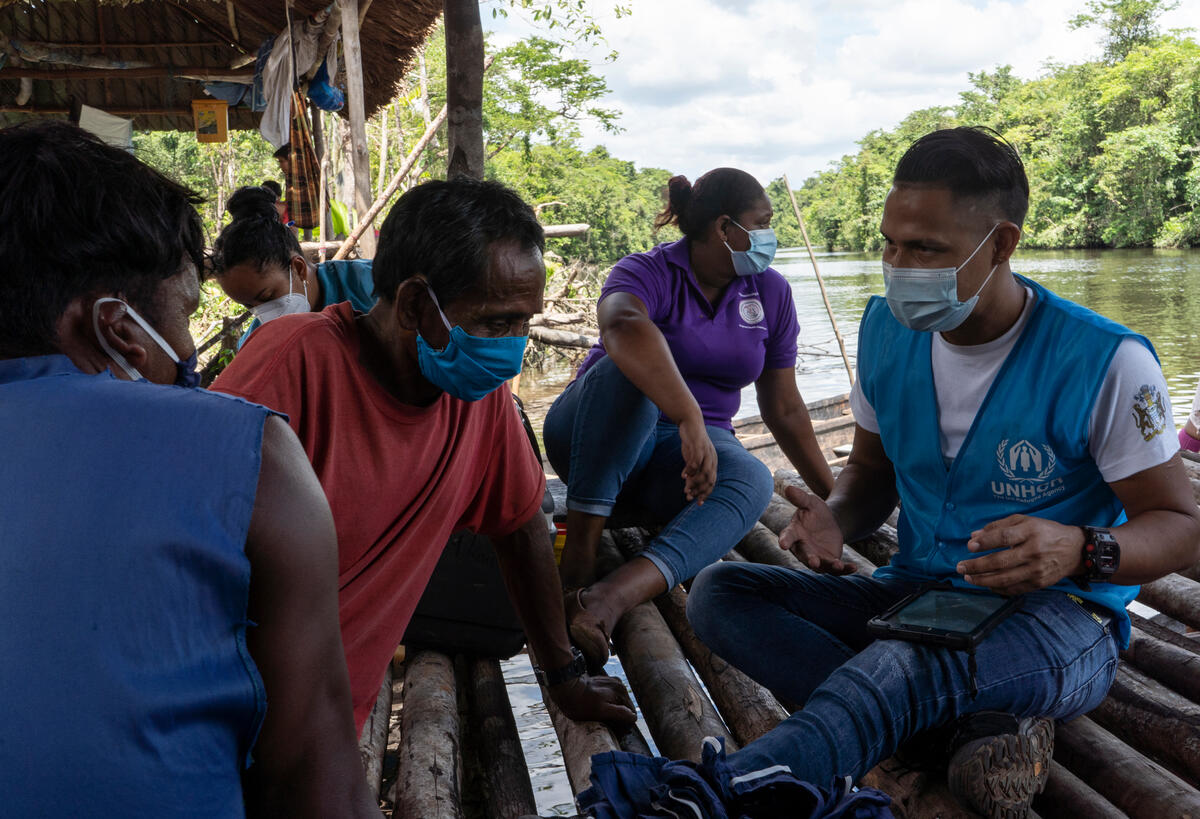UNHCR urges Colombian probe into killing of 17 indigenous people
UNHCR urges Colombian probe into killing of 17 indigenous people

BOGOTA, Colombia, February 10 (UNHCR) - The UN refugee agency called Tuesday for a thorough investigation into the reported murders last week of 17 Awá indigenous people in a remote area of south-western Colombia.
"We strongly urge all parties involved to respect international humanitarian law and ask the Colombian government to fulfil its obligations to protect civilians and take special measures for the preservation of indigenous people," said a UNHCR spokesman.
According to initial reports from provincial and local authorities, the victims include two women and a child and were killed last week on Awá collective territory in the Colombian department of Nariño. The rest of the population is now extremely frightened amid increasing concerns over a mass displacement of people in the days to come.
The area, located along the Telembi River between the villages of Ricaurte and Barbacoas, is remote and extremely difficult to reach. In some areas, there are many landmines. According to first reports, which are not yet possible to fully verify, the 17 indigenous people were murdered in a retaliatory attack carried out by an irregular armed group against the civilian population following the arrival of the Colombian armed forces.
The UNHCR field office in Nariño has been working closely with the Awá people, who like many Colombian indigenous groups have been struggling for years to keep out of the country's internal conflict. The Awá in this part of Nariño live on protected collective territory, but this has not stopped armed groups from entering their lands.
As a result, they have been subjected to severe rights violations, including constant pressure and persecution, repeated murders and forced displacement. They have repeatedly been forced to flee their ancestral lands over the past few years. Some have crossed the border to take refuge in neighbouring Ecuador. The use of landmines by irregular armed groups on their territory is another source of terror and forced displacement.
Ron Redmond, chief UNHCR spokesman, told journalists in Geneva on Tuesday that the refugee agency was "shocked and saddened at the reported killings and we express our condolences to the Awá people, reiterate our support to their right to live peacefully on their own territory, and reaffirm our commitment to keep working with them.
"We also call for an urgent and independent inquiry into the reported incident and for quick and effective prevention measures as outlined in a series of early warnings repeatedly issued by Colombia's Ombudsman Office for the Nariño region."
With 21,000 people, the Awá are the largest indigenous group in Nariño, a department that suffers some of the worst violence and forced displacement in Colombia. For the past two years, Nariño produced more than 10 percent of all cases of new forced displacement in the country.
More than 300,000 people were displaced in Colombia in 2007 and preliminary 2008 figures show a similar trend, bringing the total number of registered internally displaced people to more than 2.8 million.
The Awá people are one of 87 different indigenous groups in Colombia. More than a third of these groups are at risk of extinction, largely as a result of armed conflict and forced displacement. Their survival depends greatly on being able to remain on their ancestral territories and maintaining their close links to the land. The Colombian constitution recognizes them as people with special rights and specific protection needs.
With 12 offices in Colombia, UNHCR works with the government to help it fulfil this protection duty and with indigenous organizations all over the country. Part of that effort has been a campaign to raise awareness of the magnitude of a crisis that unfortunately continues year after year.
By Marie-Hélène Verney in Bogota, Colombia








